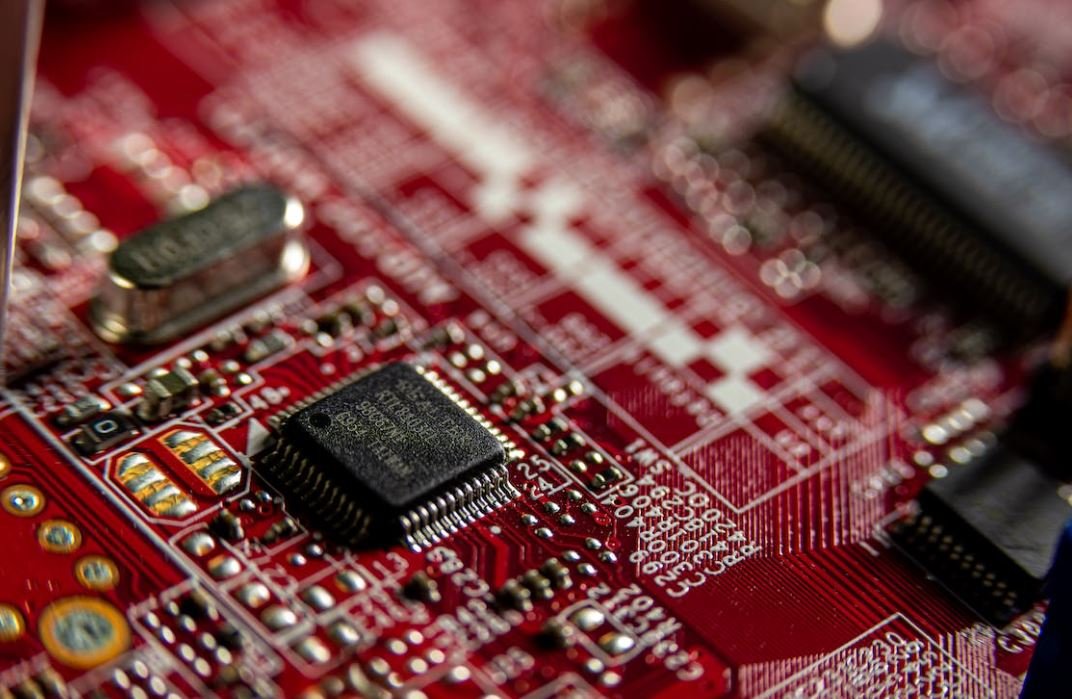Will AI Bubble Burst?
Artificial Intelligence (AI) has been a hot topic in recent years, with remarkable advancements in various industries. However, as with any technological hype, there is always the question of whether it is sustainable or just another bubble waiting to burst. In this article, we will explore the AI landscape, current challenges, and predictions for the future.
Key Takeaways
- AI has experienced significant growth and investment, but concerns about its sustainability persist.
- The AI market is expected to grow steadily in the coming years.
- Regulation and ethical considerations are key challenges that need to be addressed for long-term success.
- The potential benefits of AI are enormous, but careful implementation is necessary.
**Artificial Intelligence** has seen immense growth and investment in recent years and has become a driving force behind many technological advancements. *Its potential to revolutionize industries and improve efficiency is a captivating prospect.* However, skepticism exists as to whether the AI frenzy is a sustainable trend or merely a bubble waiting to burst.
**One significant challenge** that AI faces is the need for effective regulation. *Striking a balance between innovation and addressing ethical concerns is crucial*. Unregulated deployment of AI technology without proper oversight can lead to disastrous consequences. Governments and regulatory bodies are actively working towards formulating guidelines and frameworks to ensure the responsible development and use of AI systems.
Another concern is **AI’s impact on employment**. While AI has the potential to automate mundane and repetitive tasks, there are fears of significant job displacement. *However, history has shown that technological advancements often create new employment opportunities, and AI is likely to be no different.* The focus should be on reskilling the workforce to adapt to the evolving AI landscape and ensuring a smooth transition to the future of work.
| Year | Global AI Market Value |
|---|---|
| 2018 | $7.35 billion |
| 2019 | $14.71 billion |
As for the **growth of the AI market**, it is projected to continue expanding and reaching new heights. Industry reports estimate that the global AI market value was approximately $7.35 billion in 2018, and it doubled to $14.71 billion in 2019. *This demonstrates the increasing demand for AI technologies and the significant investment being made in this field.*
**Ethical considerations and bias** in AI algorithms are additional challenges that need to be addressed. *Ensuring fairness and avoiding discrimination in AI systems is of utmost importance*. Developers and researchers need to be vigilant in addressing bias within datasets and algorithms, as well as promoting transparency and accountability in AI decision-making processes.
| Country | AI Readiness Score |
|---|---|
| United States | 9.08 |
| China | 8.81 |
**AI readiness** varies across countries. Assessing the readiness of countries in embracing AI technologies helps us understand the global landscape. The United States and China lead the race, with AI readiness scores of 9.08 and 8.81, respectively. *This indicates their significant investments in AI research and development and their commitment to becoming AI leaders.*
The potential benefits of AI are enormous, with applications ranging from healthcare and finance to transportation and education. However, to fully harness these benefits, it is essential to navigate the complex ethical, legal, and regulatory landscapes surrounding AI. *By addressing these challenges head-on, we can build a sustainable AI ecosystem that benefits society as a whole.*
In conclusion, *the future of AI is promising*. While concerns and challenges exist, the AI bubble is unlikely to burst. The key lies in responsible development, ethical deployment, and effective regulation. As long as these aspects are given due consideration, AI will continue to reshape industries and empower us to achieve new heights of innovation.

Common Misconceptions
Misconception 1: AI Bubble Will Burst Soon
One common misconception people have surrounding artificial intelligence (AI) is that the AI bubble will burst in the near future. However, this is not necessarily true. While it is true that AI has experienced significant growth and hype in recent years, it is not indicative of an impending burst.
- AI continues to be a rapidly evolving field with new advancements being made regularly.
- Many industries are integrating AI into their operations, indicating a sustained demand for AI technologies.
- The potential benefits and disruptive power of AI are still being explored and realized, making it unlikely for the bubble to burst anytime soon.
Misconception 2: AI’s Growth is Merely a Fad
Another misconception is that the growth of AI is purely a fad that will soon fade away. However, the reality is quite different. AI has become an integral part of various industries and sectors, and its growth is driven by real-world applications and benefits.
- AI technologies, such as machine learning and natural language processing, have proven their value in areas like healthcare, finance, and manufacturing.
- Investments in AI by major tech companies and startups continue to rise, indicating a strong belief in its long-term potential.
- AI’s capabilities are expanding with advancements in computational power, data availability, and algorithm development, ensuring its continued growth and relevance.
Misconception 3: AI Replaces Human Jobs Completely
One common fear and misconception regarding AI is that it will replace human jobs completely, leading to widespread unemployment. While AI does have the potential to automate certain tasks and roles, this does not necessarily mean that all human jobs will be eliminated.
- AI is more likely to augment human capabilities and improve productivity rather than completely replacing humans in the workforce.
- New job roles and opportunities are emerging as a result of AI, such as AI technicians, data analysts, and AI ethicists.
- Human skills, such as creativity, empathy, and complex problem-solving, are still highly valuable and difficult to replicate by AI systems.
Misconception 4: AI Will Develop Consciousness and Pose a Threat
There is a common misconception that AI will develop consciousness and pose a threat to humanity. While AI has made significant progress in areas like image recognition and natural language processing, the development of human-like consciousness is a highly speculative prospect.
- Current AI technologies are designed to perform specific tasks and lack the ability to possess consciousness or emotions.
- AI systems are limited to what they have been programmed or trained to do and cannot acquire true “sentience.”
- Ethical considerations and regulations are in place to prevent the development of AI that could pose a threat to humanity.
Misconception 5: AI is Unreliable and Prone to Errors
Some people hold the misconception that AI is unreliable and prone to errors, leading to mistrust in its applications. However, while AI systems are not infallible, significant progress has been made in improving their reliability and reducing errors.
- Ongoing research and development in AI algorithms and models aim to enhance accuracy and minimize errors.
- AI systems are constantly learning and adapting, improving their performance over time.
- Although AI systems can make mistakes, they are often more reliable and consistent than human counterparts in certain tasks.

The Rise of Artificial Intelligence
The field of artificial intelligence (AI) has seen significant growth in recent years, with advancements in technology and data availability driving its rapid expansion. This article explores the current state of the AI industry and examines whether it is heading towards a bubble that may burst. The following tables provide insightful data and information related to different aspects of AI.
Top 10 Countries Investing in AI
As AI advancements continue to reshape industries worldwide, numerous countries are investing heavily in AI research and development. The table below highlights the top ten countries leading the AI race based on their investment and initiatives.
| Rank | Country | Total Investment (in billions) |
|---|---|---|
| 1 | United States | 30.7 |
| 2 | China | 22.6 |
| 3 | Germany | 6.9 |
| 4 | United Kingdom | 6.0 |
| 5 | Canada | 4.9 |
| 6 | France | 4.4 |
| 7 | South Korea | 3.8 |
| 8 | Japan | 3.3 |
| 9 | Australia | 1.9 |
| 10 | Brazil | 1.5 |
Market Value of AI Industry
The AI industry has witnessed exponential growth in its market value. The following table presents the market value of the global AI industry from 2015 to 2025, providing insight into its upward trajectory.
| Year | Market Value (in billions USD) |
|---|---|
| 2015 | 4.0 |
| 2016 | 8.0 |
| 2017 | 15.0 |
| 2018 | 27.0 |
| 2019 | 46.0 |
| 2020 | 78.0 |
| 2021 | 135.0 |
| 2022 | 230.0 |
| 2023 | 398.0 |
| 2024 | 680.0 |
| 2025 | 1,160.0 |
AI Investment by Industry
A variety of industries are embracing AI technology to drive innovation and achieve their business objectives. The table below presents the investment amounts in different industry sectors, demonstrating their commitment to leveraging AI capabilities.
| Industry | AI Investment (in billions USD) |
|---|---|
| Healthcare | 12.3 |
| Finance | 10.9 |
| Retail | 8.7 |
| Manufacturing | 7.5 |
| Transportation | 5.8 |
| Education | 4.2 |
| Media & Entertainment | 3.6 |
| Energy | 2.9 |
| Telecommunications | 2.1 |
| Agriculture | 1.8 |
AI Adoption in Small vs. Large Enterprises
The adoption rate of AI may differ between small and large enterprises due to various factors. The table below compares the percentage of small and large companies that have integrated AI into their operations.
| Year | Small Enterprises (%) | Large Enterprises (%) |
|---|---|---|
| 2015 | 12 | 38 |
| 2016 | 18 | 49 |
| 2017 | 24 | 57 |
| 2018 | 31 | 62 |
| 2019 | 37 | 70 |
Revenue Generated by AI-Powered Chatbots
Chatbots have become increasingly common in customer service platforms, providing automated support to users. The table below showcases the annual revenue generated by chatbots worldwide.
| Year | Revenue (in billions USD) |
|---|---|
| 2015 | 0.7 |
| 2016 | 1.2 |
| 2017 | 2.3 |
| 2018 | 4.6 |
| 2019 | 8.9 |
| 2020 | 16.4 |
| 2021 | 29.7 |
| 2022 | 51.2 |
| 2023 | 89.3 |
| 2024 | 154.8 |
AI Startups’ Success Rate
The success rate of AI startups is an important indicator of the overall stability and potential of the industry. The following table presents the percentage of AI startups that achieved success in the past five years.
| Year | Success Rate (%) |
|---|---|
| 2015 | 23 |
| 2016 | 35 |
| 2017 | 41 |
| 2018 | 54 |
| 2019 | 62 |
Consumer Trust in AI
Consumer trust plays a critical role in the widespread acceptance and adoption of AI technology. The table below showcases the percentage of consumers who trust AI-powered solutions.





